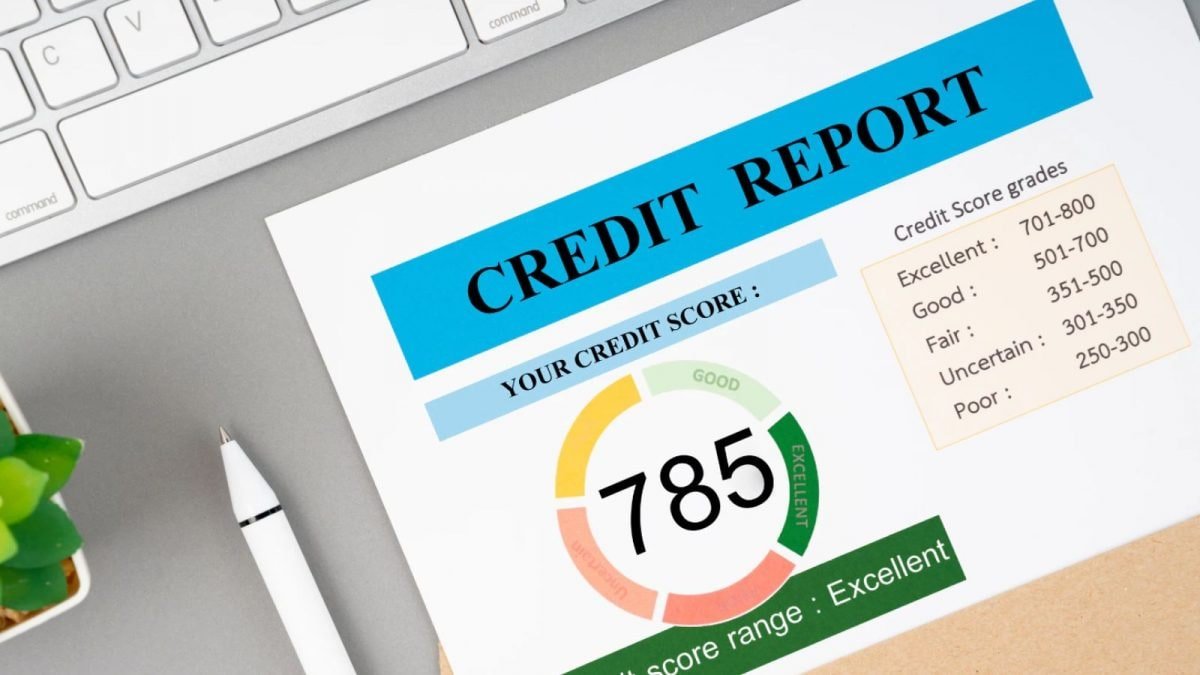Last Updated:June 27, 2025, 16:40 IST
A credit score is a three-digit number ranging from 300 to 900 that reflects a person’s creditworthiness based on their repayment history.
A higher score indicates stronger credit health. (Representative Image)
Your credit profile matters every time you apply for a loan, credit card, or even rent a home. Two important tools help lenders assess your creditworthiness: the credit report and the credit score. While they are often mentioned together, they serve distinct functions. Think of the credit report as a full history of your borrowing and repayment, while the credit score is a simplified 3‑digit rating derived from that history.
Understanding both can help you improve your financial health and secure better deals.
What Is a Credit Report?
A credit report is a comprehensive document compiled by credit bureaus (like Equifax, TransUnion, or CIBIL in India) that outlines your detailed credit history. This includes:
– Personal details: Name, address, date of birth, and employer.
– Credit accounts: Lists of loans, credit cards, defaults, current balances, and payment history.
– Public records: Bankruptcies or court judgments.
– Credit inquiries: Records of who has checked your credit report, soft checks (by you) don’t affect your score, while hard checks (by lenders) might.
Bureaus update this information regularly based on lender reports. This report acts as the foundation for creating your credit score. It helps lenders understand your credit behaviour and decide whether to approve a loan, determine interest rates, or even offer you insurance or job opportunities.
What Is a Credit Score?
A credit score is a three-digit number (typically between 300 and 900) that summarises your credit report into a single measure of credit risk. Scores above roughly 700 are generally considered good and increase your chances of loan approval.
Credit scores are calculated using algorithms like FICO or VantageScore. They assess factors such as:
– Payment history (most important)
– Credit utilisation (percentage of credit you’re using)
– Length of credit history
– Types of credit accounts (loans, credit cards)
– New credit inquiries
A credit score provides a quick snapshot of your creditworthiness—a tool lenders can use to assess risk efficiently.
How To Check Credit Report and Score
To check your credit report and score, visit a credit bureau’s official website. You’ll need to register using your PAN, email, and phone number.
After verifying your identity, you can access a free credit report and view your credit score instantly. Reviewing this information regularly helps you spot errors, track your financial health, and take corrective action if needed.
It’s recommended to check your report at least once a year or before applying for loans or credit cards.
A team of writers and reporters decodes vast terms of personal finance and making money matters simpler for you. From latest initial public offerings (IPOs) in the market to best investment options, we cover al…Read More
A team of writers and reporters decodes vast terms of personal finance and making money matters simpler for you. From latest initial public offerings (IPOs) in the market to best investment options, we cover al… Read More
- Location :
Delhi, India, India
- First Published:
#Credit #Report #Credit #Score #Borrower #Business #News



